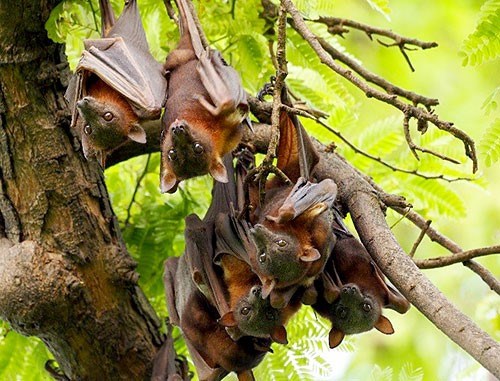
The Palaszczuk Government is delivering on another election commitment by providing more than $300,000 to help seven councils across the state manage flying fox camps and roosts.
Environment Minister Meaghan Scanlon said the funding of $302,642.80 was part of the Queensland Government's $2 million Flying-Fox Roost Management in Queensland grants program.
"This funding comes from round two of the grants program and is part of the continued rollout of the Queensland Government's COVID-19 economic recovery plan as well as our record $1.4 billion budget to protect our environment," Minister Scanlon said.
"The seven successful councils and their communities will be provided with this funding for flying fox management activities.
"Flying foxes are protected, and our roost management grants program helps councils to manage the impacts of flying fox roosts on their residents while allowing the animals to continue delivering their critical pollination and seed dispersal roles.
"Flying-foxes are nocturnal and, depending on the species, feed on the flowers, fruit, nectar and pollen of plants. Because they are highly mobile, they can disperse seeds and pollen over vast distances.
"They play a vital role in pollinating and spreading the seeds of our native plants, but when they congregate in large numbers at roosts, they can cause conflict with nearby communities due to the noise, smell and mess they generate."
Successful applicants for round two:
- Charters Towers Regional Council - $3,162 for a water reticulation system to maximise grass cover at the Lissner Park alternative roost site
- Rockhampton Regional Council - $45,105 for remediation works in the Rockhampton Botanic Gardens for vegetation management and deterrence equipment
- Sunshine Coast Regional Council - $71,918 for installation of a canopy sprinkler system to create an exclusion buffer at Porter Park and to develop habitat suitability modelling across the LGA area to guide future land use planning and to develop school educational programs
- Isaac Regional Council - $28,000 to identify preferable habitat to reduce the likelihood of roosts and camps moving into urban backyards
- Scenic Rim Council - $20,000 to develop long-term roost management plans for roosts in Canungra and Beaudesert
- Hinchinbrook Shire Council - $60,705.30 to move flying foxes from the Ingham Botanical Gardens and improve alternative roost site in the Tyto Wetlands
- Moreton Bay Regional Council - $73,750 to establish a detailed list of plant species that flying foxes feed on in the LGA area and to develop educational materials to promote co-existence between the community and flying foxes.
Minister Scanlon said the funding will help the successful councils plan immediate high-priority roost management works to encourage flying foxes to roost and camp away from urban areas.
"The Queensland Government is committed to protecting and preserving our unique, ecologically important wildlife, and we will continue to work with councils and the community to manage environmental issues to achieve the best possible outcomes," she said.






